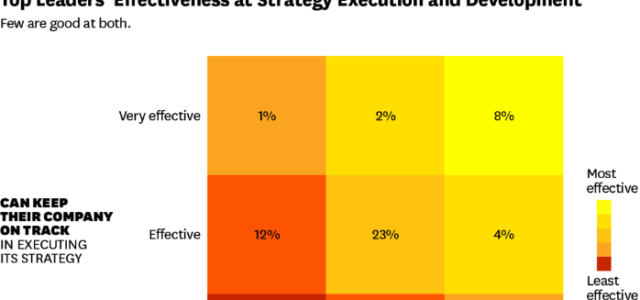If it’s Tuesday, This must be Belgium…no not this time. It is in fact time for my coffee chat with yet another one of Watershed CI’s elite group of Change Management Executives. Today’s edition, third in the series, finds us at the table with Reg Scotland, who much like the star-studded movie mentioned is himself a “vintage classic”.
Reg is an interesting chap who reminds me of one of my grammar school Headmasters sporting a military-styled, handlebar moustache. However, that’s where the similarities end in that Reg is a much friendlier individual with the bedside manner of a well-respected family doctor. Something I’m positive we’ll come to witness through his well thought out and experienced responses to my questions.
PGG: So Reg, I really appreciate you taking the time to sit and chat and I’ll get right to my first question: I’m wondering how you influence others to drive changes forward?
RS: Well, Peter, that’s a bit of a tricky one, because the degree of our influence with any one person or group moves back and forth on a continuum and becomes stronger and weaker as a result. To my mind, influence is the ability to affect the behaviour of another, whether person or organization, through indirect means. As someone who believes firmly in leading by example, I ensure that I model the change I want to see others adopt. If that’s something as simple as being on time for meetings, then I hold myself absolutely to the standard of being in place, prepared and ready to begin at the appointed time.
That modelling includes sharing and reinforcing the vision of the desired new way of being, so that people are reminded of where we, as an organization, want to go and further, why we need to move there. Sometimes it’s the repetition of the present state being untenable (creating that famous “burning platform”); sometimes it’s continued visioning of the benefits of the future — and why people want to move into that future — so the classic “what’s in it for them” approach; and sometimes it’s just taking the time to hear and reassure people that what they are feeling is normal, and to keep moving forward toward that brighter tomorrow.
PGG: That was a very thorough response Reg, and I’m grateful for that. While my question was about influencing change, it’s clear that there are numerous other areas of our lives that are negotiated for not least of which, is getting comfortable with change itself. I read in your profile that you’re an ex-military man and so I am extremely interested in hearing: what techniques you have used to motivate your team?
RS: Again, this is one where the cookie-cutter approach usually fails. Everyone is a one-off, and the techniques that work on one person might fall flat with another. The more that people have in common, the easier it is to find the technique that might appeal to the greatest number — but there will always be some who stand outside of the circle.
Another key factor I find useful is the “cards on the table” approach of boldly asking people i.e. team members, sponsors, stakeholders, what they would like. It might be recognition; it might be new learnings and training; it might be the challenge of a worthwhile but difficult project; or, it might be money, But I have found money to be a critical factor less often than you would think.
Things that have worked well for me are based around communication, and by communication I mean much more than just the vocal or written interactions. On one project affecting 12,000 people, I put a muffin kiosk in the lobby of the main building and presented people coming into the lobby with a muffin, courtesy of our project. It worked to bring an awareness of the project to people, and to link a pleasant experience with the name of our project, reducing overall fears and opening the door to further interactions.
PGG: Not the typical answer that I had expected given your background, Reg, and yet very much in keeping with the experienced person I believe you are today. I’ve described you to others as having a great bedside manner, and I am pleased to see that you have, in fact, validated that opinion. Now I hate to come out of left field with my next question to you, but I’m even more comfortable at this stage that nothing will surprise you. I’m interested to know: what techniques you’ve used to manage political obstacles to change?
RS: It took me a long time to see unexpected things as a “why is this so?” rather than “this is wrong”. But learning to respond in that fashion has led me to a lot of solutions that would otherwise have been overlooked. So again, communication is a huge factor here, including the creation of trust relationships.
Engaging more closely with those presenting political obstacles presents an opportunity for understanding what is driving their resistance — and what might be the right approach to overcome or lessen it. It’s a velvet-on-steel approach, where the hope is that the appropriate resolution can be obtained pleasantly, but with an awareness that sometimes-sterner measures are called for.
I try to establish relationships with my key stakeholders early on in the game, and to continually work to support and strengthen those relationships. I find that the more open and honest the communication, the more likely a solution can be found that is acceptable to all. I find that reasonable people of good will, in open communication, can usually find a way — perhaps with a little assistance from good facilitation.
But, if need be, I’m quite ready to escalate items to the level where a decision can be made and supported to remedy the political situation.
PGG: There’s signs of some quality change that has taken place in your own personal experience and development, Reg, and it speaks to your, “tried and true” methodologies portrayed in your response. Thanks for those great nuggets of wisdom.
I have one last question for you and it’s about something I know many of us have so much trepidation about. I’d love to know: how you go about making difficult decisions?
RS: Well, Peter, I like to consider myself a rational person, and that decision-making should be a rational process. And I do start off that way — usually by considering the logical pros and cons of the decision, the effects the decision will have in the short, medium and long terms, and what makes good logistical and team management sense. So the first level is gathering facts as objectively as possible.
But the reality for me, and most people, is that emotional factors come into play, so I try to pay attention to what my hunches are telling me — one wise person once told me that a hunch is your subconscious signaling based on something your conscious brain might have overlooked. I engage trusted individuals as sounding boards, and to generate alternative perspectives to help me come to a more rounded decision. If time allows, I like to load all this information into my head and then do something else for a day or two as my subconscious processes things. If I’m lucky, the right thing begins to stand out.
How long does this take? It depends on how long I have. The more urgent a decision, the faster I’m going to go through the process, remembering that I have to “plan all that I can, and then adjust what I must”. Sometimes a 60% solution based on knowledge at hand, is more useful than a 100% solution in two weeks.
PGG: Thank you so much for your detailed responses Reg, and I must say what a pleasure it’s been to share this time with you and how pleased I am with the quality of your insight. I’m even more convinced that you might very well be an experienced doctor in disguise, as I like how you took the difficult and sharp subject matter and converted it to user-friendly conversation. I look forward to spending more time with you as our schedules permit.
Reg is currently engaged with one of Canada’s largest power companies, working on building out the Strategic Change Management Plan, and I’m absolutely sure that the client is in great hands with his sound judgment and solid experience in managing change.
Reg Scotland, CD, BAA, CMC, PMP, CMP, P.Log., Prosci, ADKAR
Article by channel:
Everything you need to know about Digital Transformation
The best articles, news and events direct to your inbox
Read more articles tagged: Change & Transformation, Featured







